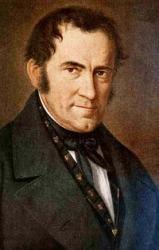
1855 - 1933 Person Name: William H. Draper, 1855-1933 Hymnal Number: 144 Translator of "All Creatures of Our God and King" in Singing Our Faith Draper, William Henry, M.A., son of Henry and Lucy Mary Draper, was born at Kenilworth, Dec. 19, 1855, and educated at Keble College, Oxford; B.A. in honours, M.A. 1880. Ordained in 1880, he was Curate of St. Mary's, Shrewsbury; Vicar of Alfreton; of the Abbey Church, Shrewsbury; and since 1899 Rector of Adel, Leeds. Mr. Draper's hymns in common use include the following:—
1. Come forth, ye sick and poor. [Harvest.] Written in 1001 and printed in the Guardian, Sept. 18, 1901. In 1905 it was given, somewhat altered, in The Council School Hymn Book, No. 132. It was also published by Novello & Co., with Music by J. H. Maunder.
2. From homes of quiet peace. [In Time of War.] Published by Novello & Co. in their series of Hymns in Time of War, 1900, and repeated in The Public School Hymn Book 1903, The Council School Hymn Book, 1905, and others.
3. How blest the land where God is known. (National Hymn.] Written for Novello's Eight Hymns, with Tunes , for use in services held in connection with the Coronation of King Edward VII., in 1902. It was included in The Council School Hymn Book, 1905, No. 91.
4. How fair was the land of God's people of old. [National Hymn.] Written for use in Day Schools, and rir»t published in The Council School Hymn Book, 1905, No. 121.
5. In our day of thanksgiving one psalm let us offer. [Dedication of a Church.] Written for use at the service at the reopening of the Abbey Church, Shrewsbury, after restoration, in 1894. It was also used at the Shrewsbury Church Congress, 1896; and elsewhere on other occasions. In 1904 it was included in the new edition of Hymns Ancient & Modern.
6. Lord, through this Holy Week of our Salvation. [Holy Week.] First published in Hymns for Holy Week, 1898, and included in Hymns Ancient & Modern 1904, No. 109.
7. Man shall not live by bread alone. [Divine Providence.] First published in The Church Monthly, and again in The Council School Hymn Book, 1905, No. 103.
8. Rejoice, ye angels in the sky. [Whitsuntide.] Written for the Leeds Whitsuntide Hymns, 1902 (to Gounod's tune for "O come, O come, Emmanuel"), and included in The Council School Hymn Book, 1905.
9. We love God's acre round the Church. [Burial.] Printed in the Guardian, Aug. 1, 1900, with the title, "Hymn for those who die far from home and country"; later by Novello, with music by Dr. V. Roberts; and again, with slight alterations, in Brookes's Additional Hymns, 1903.
10. What can I do for England. [National Hymn.] Written in 1905 for The Council School Hymn Book, and included therein in the same year.
11. Ye sons of God, arise. [Processional. Choral Festivals.) Written for a Choral Festival in Gloucester Cathedral, June 8th, 1893; reprinted for the Leeds Whitsuntide Hymns, 1901; and again for the Choir Festival in Chester Cathedral, 1905.
In addition to these hymns which have come into common use. Mr. Draper has written many others of merit which are worthy of attention. They include:—
1. Hymns for Holy Week, being translations from Hymns of the Greek Church, with Six Originals, &c. . . . London: H. Frowde, 1898 (see No. 6 above). This contains 13 original and translated hymns.
2. The Victoria Book of Hymns, 1897.
3. A Memorial Service for them that are Fallen Asleep in Christ. London: H. Frowde, 1898, 4 hymns (including No. 9 above).
4. The Way of the Cross (Oxford: A. R. Mowbray & Co.), n.d., with music by Dr. Sweeting.
Mr. Draper's hymns are so scattered in the Guardian, Church Monthly, and sundry magazines that it is a matter of some difficulty to trace them out. They exceed sixty in all, and are worthy, taken as a whole, to be published as a volume of sacred verse.
--John Julian, Dictionary of Hymnology, New Supplement (1907)
William Henry Draper





